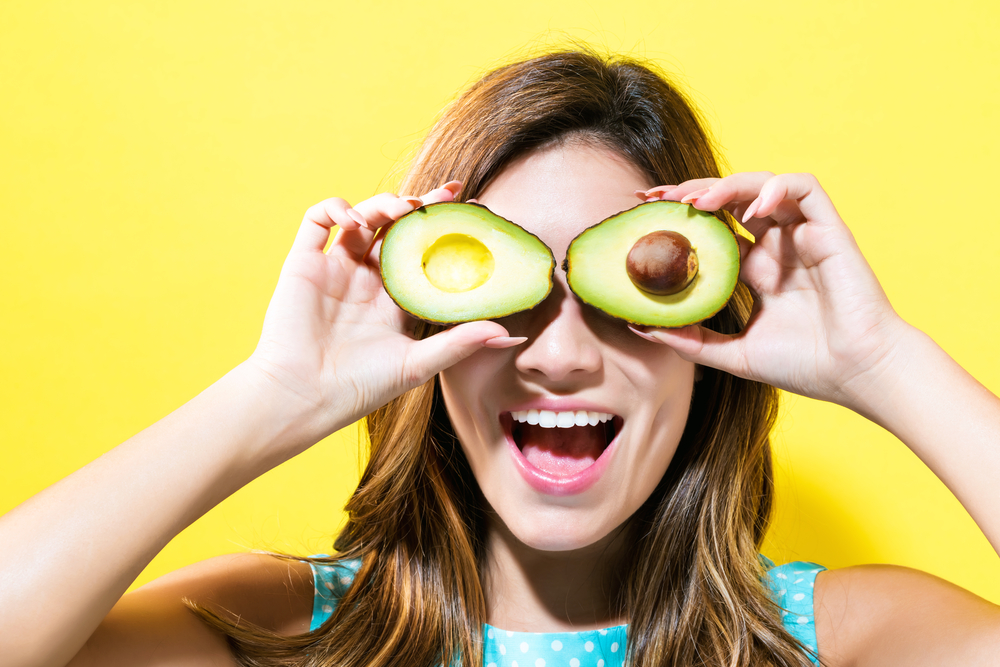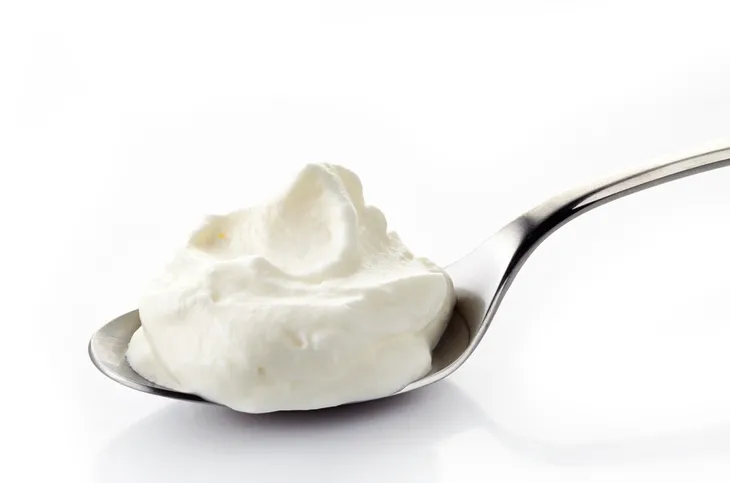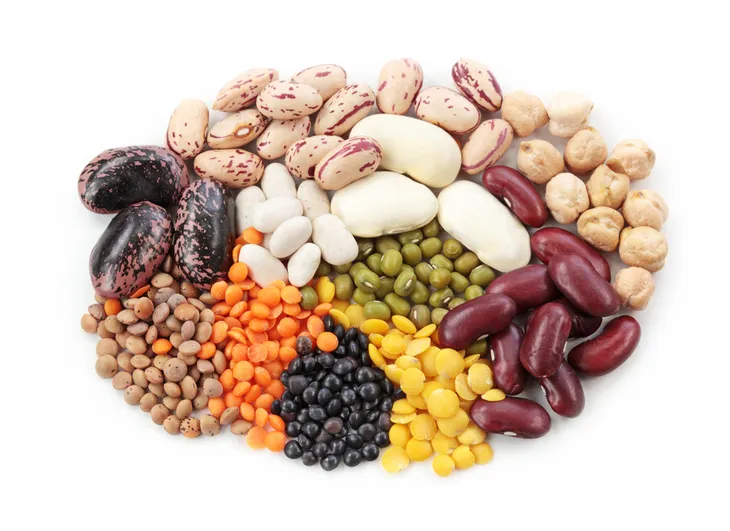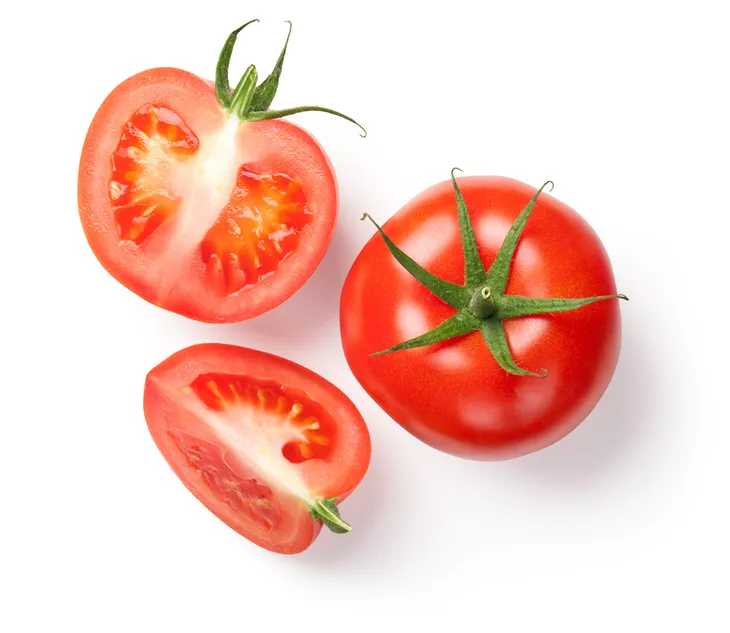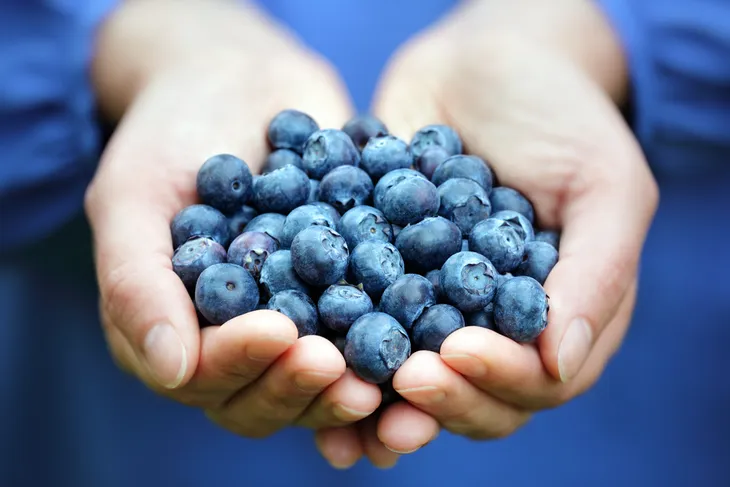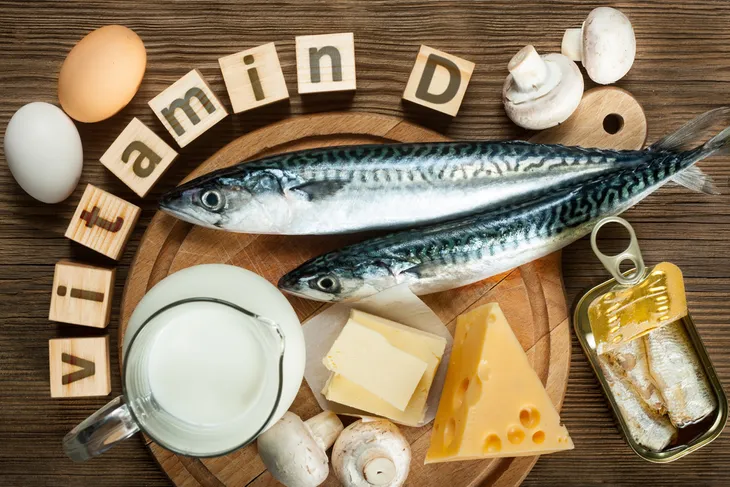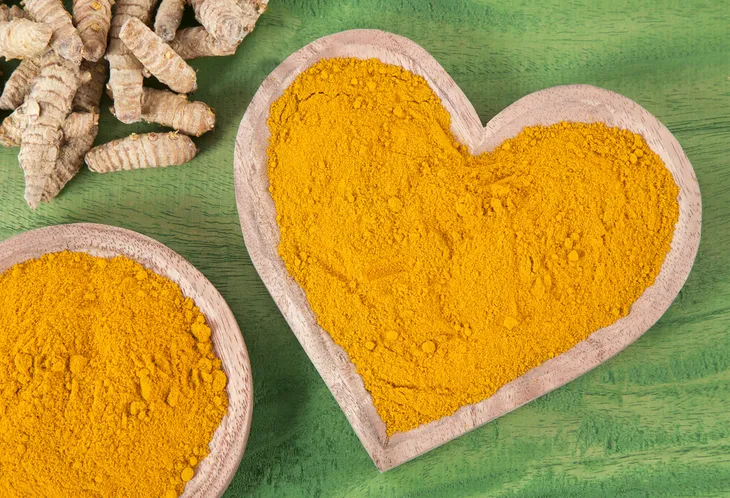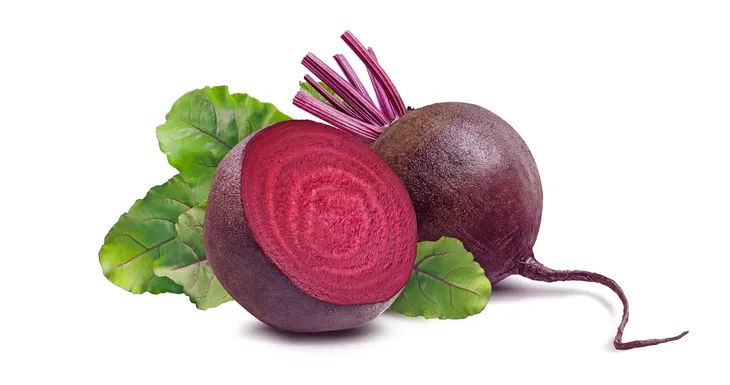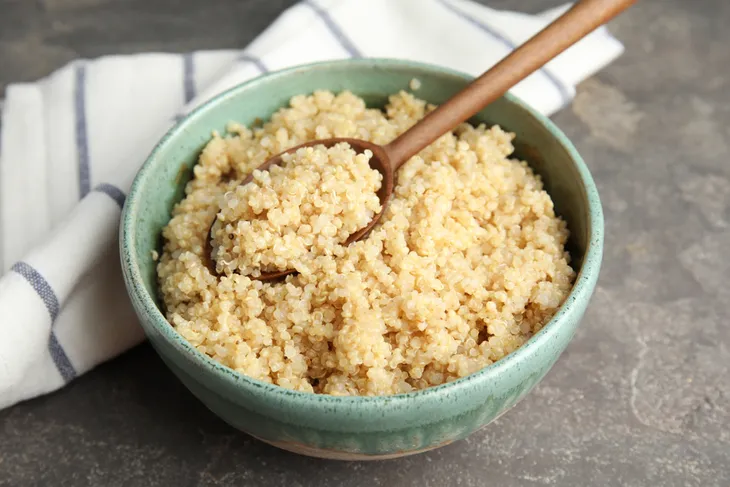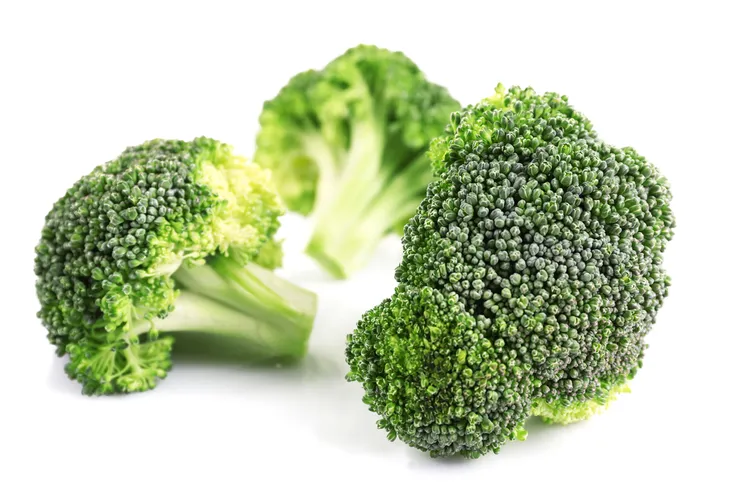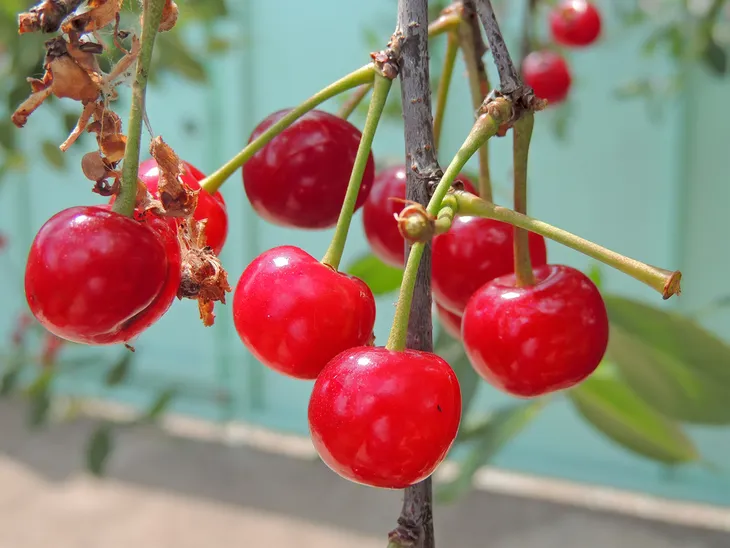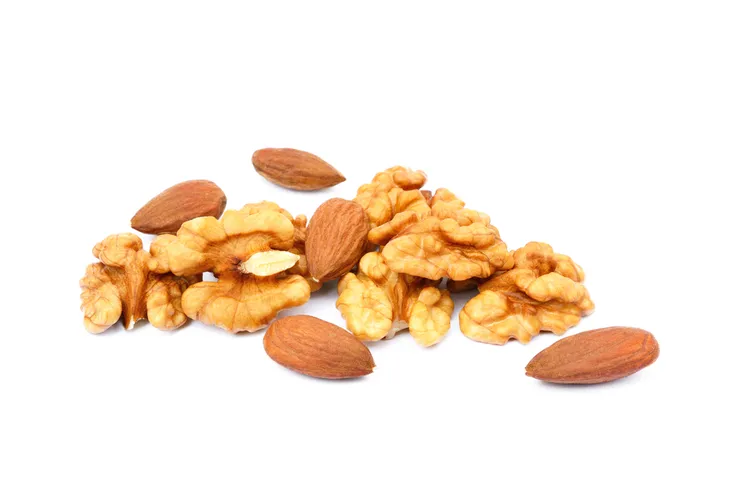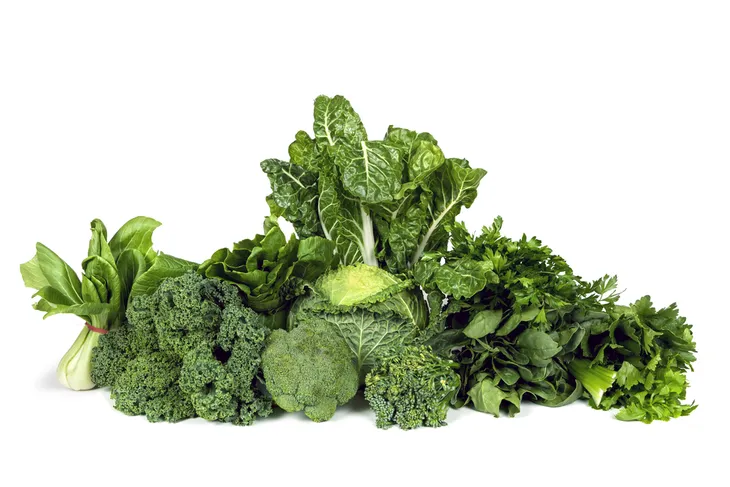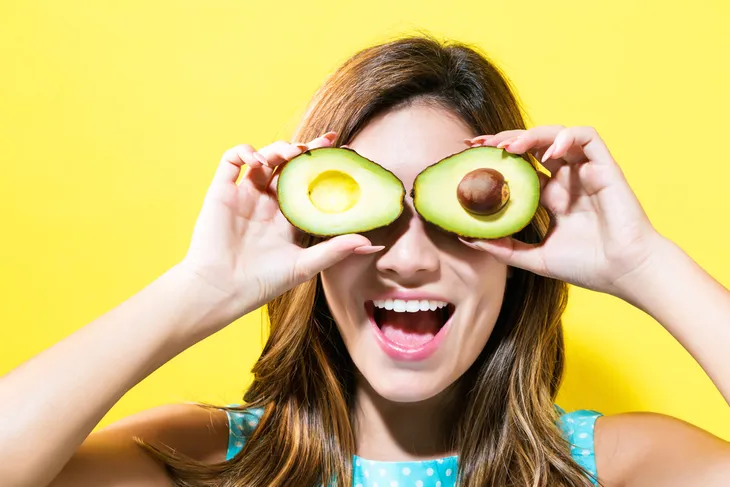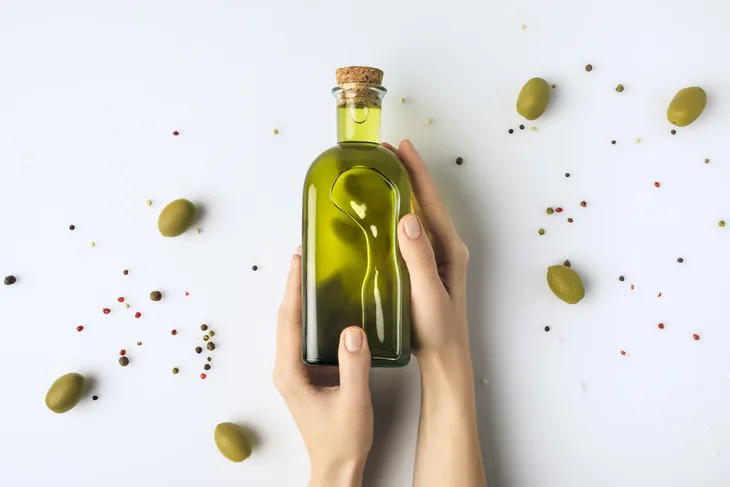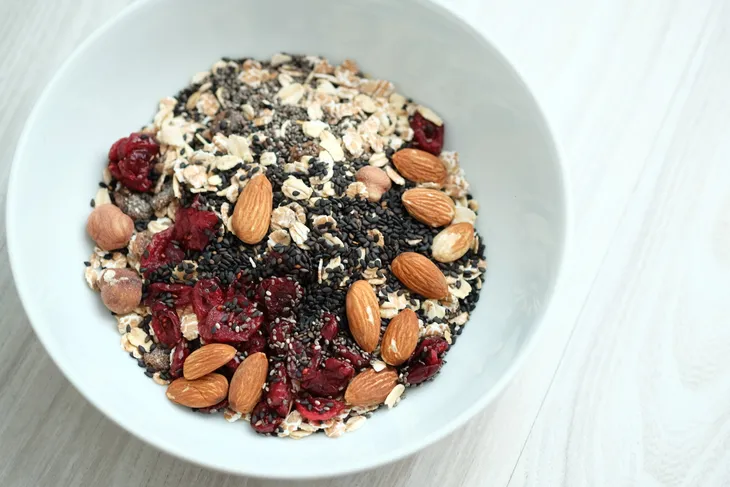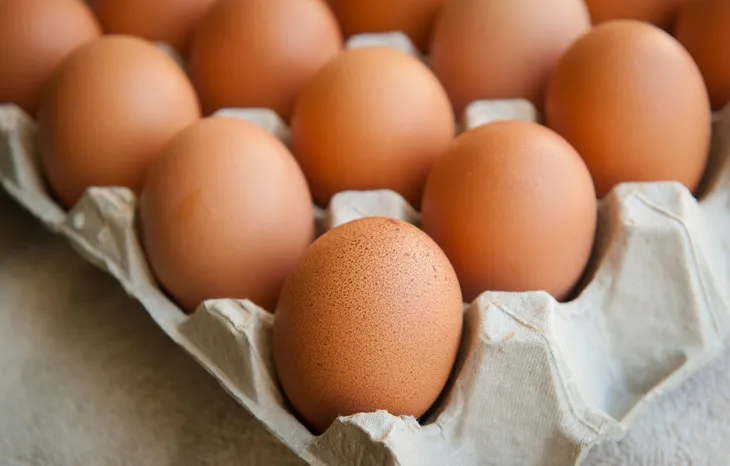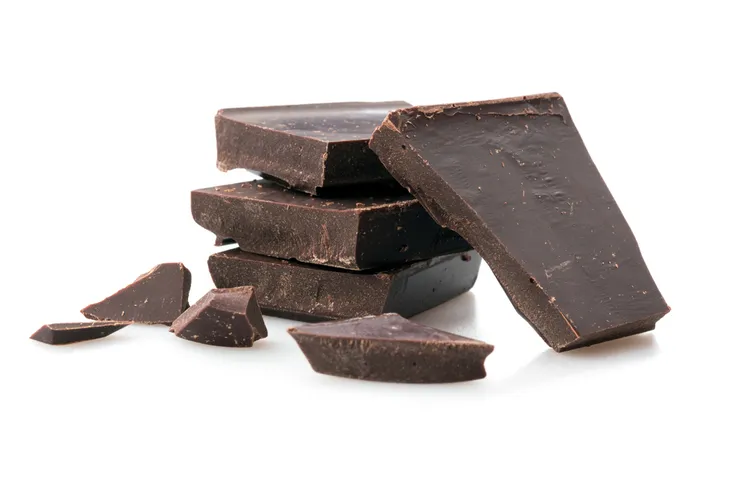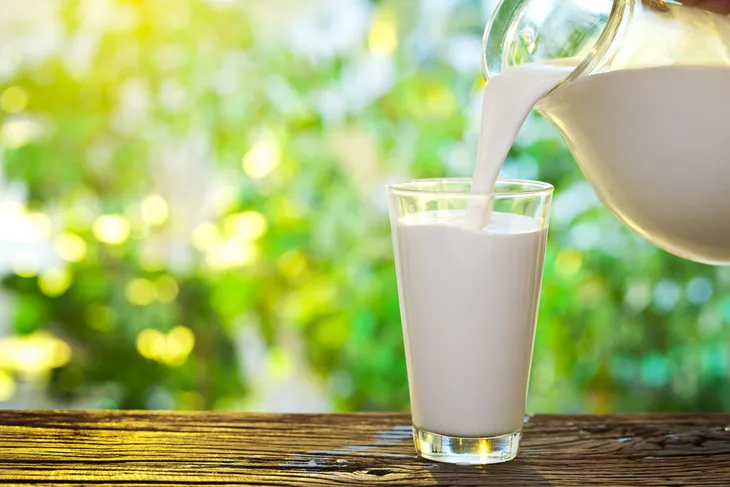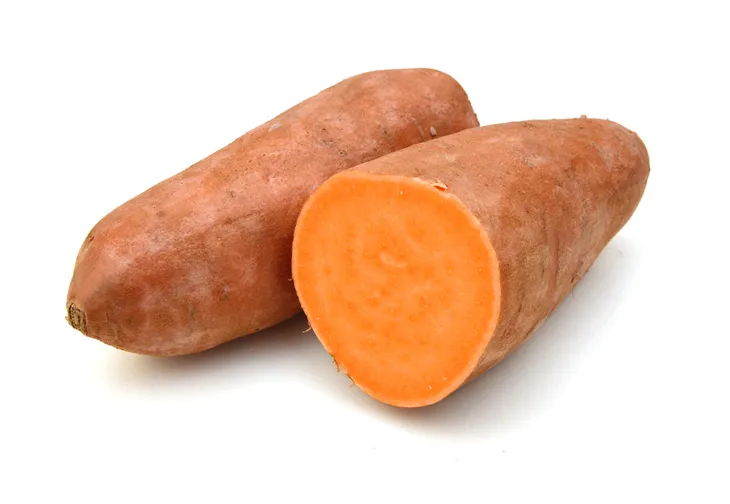Some people (myself included) tend to put more emphasis on the amount of exercise we get in a day rather than what we’re eating. This might be so that we can get away with eating whatever we want, but that’s not how it works! While exercise is super important, our diet is even more important.
With that being said, do you know what foods are the most healthy and will provide the best benefits? We’ll admit there’s an overload of information out there with new diet tips and tricks that promise excellent results every day, so it can be hard to decipher what’s real and what’s not.
Don’t fret! We understand that our health can be hard to navigate, especially when it comes to our diet. Instead of following a specific diet, the most important thing to do is to eat whole, nutritious, and healthy foods, including any of these 20 superfoods for women’s health…
Greek Yogurt
Yogurt is a popular snack and is well known for its digestive benefits. What makes yogurt particularly great for women is the notion that it may decrease the risk of breast cancer, says Elizabeth Somer, MS, RD, author of Age-Proof Your Body. “And there’s very strong evidence it can reduce problems associated with irritable bowel syndrome and inflammatory digestive tract disorders — both conditions that impact women more than men.” There’s also evidence that it can help reduce the risk of stomach ulcers and vaginal infections, says WebMD.
The only problem with yogurt is that there are so many different options. Greek yogurt is among the best because it’s loaded with protein, but according to Somer, just make sure it’s a low fat variety with live cultures like Lactobacillus acidophilus. Also, be sure to always choose a plain option because the ones with added flavors and fruit contain lots of sugar. You’re better off to buy plain and sweeten it up at home with fruit or honey.
Beans
Beans are such a great food to eat because they are affordable, they’re versatile, and they’re super healthy. Plus, there are so many different varieties to choose from so you won’t get sick of them! According to Prevention, just 1-cup of beans provides 17-grams of fiber. They also have lots of protein, key nutrients, as well as calcium, potassium, and magnesium. The source cites studies that “tie beans to a reduced risk of heart disease, type 2 diabetes, high blood pressure, and breast and colon cancers.”
Health.com also boasts about the benefits of beans, but states that red beans are among the best because they are full of healthy antioxidants and packed with protein, folate, minerals, fiber, and resistant starch. Contributing Health Editor Maureen Callahan, MS, RD, tells the source that resistant starch contains lots of amazing health benefits which include “boosting the body’s ability to burn fat, helping you feel full, controlling blood sugars, and even reducing cancer risk.”
Fatty Fish
What makes fatty fish so extremely healthy is the fact that it contains omega-3 fatty acids. There are two specific types of omega-3 fatty acids found in fish — DHA (docosahexaenoic acid) and EPA (eicosapentaenoic acid), says WebMD. “Fatty fish not only plays a vital role in the health of the membrane of every cell in our body, but it also helps protect us from a number of key health threats,” says Laurie Tansman, MS, RD, CDN, a nutrients at Mount Sinai Medical Center in New York to WebMD.
Some of the main threats that fatty fish can help protect us from are heart disease, stroke, hypertension, depression, joint pain, and any illnesses related to inflammation like lupus or rheumatoid arthritis.
Tomatoes
Tomatoes are super healthy because they contain lots of lycopene. This nutrient is extremely powerful as it can help protect men from prostate cancer and women from breast cancer. “And it’s also a powerful antioxidant that can help a woman fight heart disease,” says NYU nutritionist Tara Miller, MS, RD to WebMD. Further research shows it might also benefit our skin by protecting against UV damage from the sun, adds WebMD.
The main problem with tomatoes is that we don’t often eat them in their raw form which is how we’d be able to reap all their healthy benefits. More often than not, people consume tomatoes through sugar-filled sauces like ketchup, pasta sauce, or even on a sandwich. The best way to consume a tomato is on its own, says Prevention.
Blueberries
Blueberries are an amazing superfood because they’re full of anti-cancer nutrients called anthocyanins. These nutrients can help with cell repair and even decrease the risk of some cancers like gastrointestinal and breast, says WebMD.
They’re also known for their anti-aging effects. “They’re truly one of nature’s ultimate anti aging foods,” says Kate Geagan, MS, RD, author of Go Green Get Lean to Health.com. The source cites research which showed that these teeny tiny berries can prevent memory loss, improve motor skills, lower blood pressure, and fight wrinkles.
Health.com suggests eating wild berries after scientists at Cornell University “came up with a new way of testing the antioxidant activity in foods, wild blueberries scored the highest.” This is likely due to their anthocyanins.
Vitamin D
You’ve definitely heard of vitamin D, but you probably don’t put much thought into getting enough vitamin D, but it actually plays a very important role in helping our body function properly. Vitamin D is “Essential to helping the bones absorb calcium from the gut,” says Elizabeth Somer, MS, RD to WebMD. “Vitamin D helps reduce the risk of osteoporosis and may be vital in reducing the risk of diabetes, multiple sclerosis, and tumors of the breast, colon, and ovary.”
Somer adds that many women are actually vitamin D deficient which can be quite dangerous. “A combination of staying out of the sun (which the body uses to manufacture vitamin D) and using sunscreen, which blocks the synthesis of vitamin D, has resulted in many women hitting a dangerously low level of this nutrient. This might seem like a losing battle because we want to stay out of the sun to avoid skin cancer, so WebMD lists a number of foods that women can eat in order to obtain vitamin D. These foods are salmon, mackerel, tuna, and sardines, as well as fortified foods like milk.
Turmeric
This spice is receiving all kinds of praise and attention lately due to it’s amazing health benefits. If you haven’t heard of it before, then you’re missing out! A member of the ginger family, turmeric is recognized for its bright yellow color and is often used in curry dishes. “Curcumin, a plant nutrient that gives turmeric its deep golden hue, has long been used in Eastern medicine to treat infections and help speed wound healing,” writes Everyday Health.
In addition to it’s healing effects, turmeric may also be able to treat conditions like inflammation, digestive problems, and Alzheimer’s, says the source. “Regions of India with the highest regular consumption of turmeric have the lowest rates in the world of Alzheimer’s disease,” says Wendy Bazilian, RD, co-author of Superfoods Rx Diet: Lose Weight with the Power of Supplements. “It may help promote brain health as we age.”
Beets
While beets might not be everyone’s favorite food, they are one of the best foods to eat. Everyday Health cites research that shows beets may be able to lower blood pressure which can help prevent heart disease, blood clots, and strokes. They’re also packed with potassium and high in folate, “which we need to manufacture new cells and prevent DNA damage (a precursor to cancer),” writes the source.
Everyday Health also notes that there are chemicals in beets which can help combat cancer and inflammation.
Quinoa
Quinoa is another food that has become increasingly popular in recent years. It’s a really great alternative to potatoes or rice, is super affordable, and versatile! On top of all that, it’s really healthy.
So now onto why quinoa is considered one of the best superfoods for women. Well, believe it or not, this plant-based food is high in protein (that’s right meat-eaters!), plus it contains “nine essential amino acids your body needs,” writes Prevention. “It’s also solid on fiber to aid your digestion, and is practically multivitamin-heavy when it comes to nutrients like iron, magnesium, calcium, potassium, and folate.”
Broccoli
A vegetable like broccoli is so powerful that even just four servings a week can lower a person’s risk of dying from ANY disease by 26-percent. These findings were gathered from a study of 6,100 people over the course of 28 years. Health.com also notes that broccoli may help prevent breast cancer and fight off excess estrogen. “Rich in vitamin C and a good source of vitamin A, broccoli helps you feel full on less than 30 calories per serving,” writes the source. “And it gets bonus points for fiber, folate (folic acid), calcium, iron, and potassium.”
Prevention notes that steaming this vegetable will maximize its benefits. Lightly steaming broccoli releases the maximum amount of sulforaphane, an active compound in cruciferous vegetables.
Tart Cherries
Before we get too far into this, we need to make an important distinction. Tart cherries are different from black cherries. Tart cherries are the kind that are often used in baking, that come frozen, canned, or in juice, says Everyday Health.
What makes them so healthy for us? Well, according to Everyday Health, they are “anti-inflammatory superstars” and can be used to manage pain. The source talked to Wendy Bazilian, RD who says, “They’ve long been used to treat arthritis and gout symptoms.”
The source cites research from the University of Michigan which found that tart cherries can be used to relieve arthritis and muscle soreness from workouts. It can also possibly lower cholesterol and reduce body fat, says Everyday Health.
Nuts
The USDA advises people to eat 1.5-ounces of tree nuts a day because it can reduce the risk of heart disease and diabetes. Prevention writes that walnuts in particular are rich in omega-3s, while “hazelnuts contain arginine, an amino acid that may lower blood pressure.” Also, 1-ounce of almonds provides lots of heart healthy polyphenols.
Walnuts also contain protein, fiber, vitamins and minerals, says David L. Katz, MD, MPH, associate professor at the Yale School of Medicine to Health.com. All it takes is a handful of walnuts a day to boost brain function, improve sleep, lower cholesterol, improve stress, prevent heart disease and fight off cancer, says the source.
Dark Leafy Greens
It shouldn’t come as a surprise to anyone that dark leafy greens are among the healthiest foods for us. The types of leafy greens were talking about are kale, Swiss chard and spinach. Swiss chard provides some amazing benefits to the brain as it’s helpful for improving mental function and fighting Alzheimer’s disease, writes Health.com. According to a study performed by Tufts University, there’s a strong link between foods with lots of B-vitamins (like Swiss chard) and a decrease in cognitive decline. “Swiss chard is also a good source of vitamin E and folate, nutrients believed to protect the brain,” writes the source.
Spinach on the other hand is great for building muscles thanks to its lutein content. “Aside from guarding against age-related macular degeneration, a leading cause of blindness, lutein may prevent heart attacks by keeping artery walls clear of cholesterol,” writes Prevention. The source also notes that spinach is high in iron which helps deliver oxygen to our cells for energy and folate, a vitamin that prevents birth defects.
Avocado
Avocados have become super popular in recent years, and for good reason! They taste super yummy and they’ve got all kinds of amazing health benefits. “Avocados are packed with heart-protective compounds, such as soluble fiber, vitamin E, folate, and potassium,” says Elizabeth Somer, RD, to Prevention.
It’s important to note that even though avocados are healthy, they are full of calories, so you’ll want to enjoy them in moderation.
Olive Oil
Olive oil is a big part of the Mediterranean diet which was voted as the best overall diet in 2019, so already we’re onto something here! While we might not think of olive oil as a “food” to eat, we use it a lot when cooking. This cooking staple has been linked to heart health, longevity and improved brain function, says Health.com.
The source cites a study from Columbia University which found that “sticking to a Mediterranean diet not only protects against Alzheimer’s disease but also helps with mild fuzzy thinking,” writes the source. It also refers to a 2008 study from Spain which suggests that extra-virgin olive oil has the ability to fight off breast cancer.
Oats
Oats are a great breakfast food because they’ll keep you feeling nice and full until your next meal due to their soluble and insoluble fiber content. They have also been linked to lowering cholesterol, helping control weight, and keeping us regular.
In addition to all of this, research has shown that oatmeal can help reduce our risk of type 2 diabetes and heart disease, says Prevention. “When Finnish researchers tracked 4,316 men and women over the course of 10 years, they found that people who ate the highest percentage of cereal fiber were 61-percent less likely to develop type 2 diabetes,” writes the source.
Like some of the other foods on this list, it can be hard to know exactly what kind of oats to buy — there are just too many options! The best and healthiest oats to buy are steel-cut oats. While they take longer to cook, they contain more fiber, says Health Senior Food and Nutrition Editor Frances Largeman-Roth, RD.
Eggs
Eggs are known for being one of the best foods to start the day. This is mainly because of their protein, but that’s not all they provide! Prevention states that the yolk of the egg in particular contains choline, which may help lower a woman’s risk of breast cancer. According to the source, a single yolk can provide 25-percent “of your daily need and antioxidants that may help prevent macular degeneration and cataracts.”
Dark Chocolate
You don’t need to convince me to eat more chocolate! While chocolate is usually associated with the “bad” or unhealthy foods (and don’t get us wrong, it’s not the world’s healthiest food), but dark chocolate does have its benefits. According to Health.com, dark chocolate is rich in “heart-protective antioxidants” and can help reduce our risk of heart disease and stroke. “It’s loaded with magnesium, manganese, copper, zinc, and phosphorus — all important for strong bones.”
The source cites studies that have found evidence that dark chocolate can “help hydrate the skin, lower blood pressure, and sharpen thinking.” What’s not to like about that! Like all foods, you should only eat dark chocolate in moderation and definitely don’t get it from those candy bars in the grocery store aisle. You want that rich, dark chocolate. One square a day is plenty.
Fat-Free Organic Milk
Most people have started drinking less milk, myself included, but when consumed in moderation, it’s still really good for us. Prevention cites studies that show calcium is not only good for our bones, but it can also combat fat. Research from the University of Tennessee had great results from a group of obese participants who ate a low-calories, calcium rich diet. They were able to lose 70-percent more weight than those who didn’t eat as much calcium.
The source also notes that milk is also a great source of vitamin D, which we’ve already mentioned is an important nutrient for women. Vitamin D helps our body absorb calcium. “Research shows that adequate D levels can reduce heart disease risk, ward off certain types of cancer, relieve back pain, and even help prevent depression,” writes the source.
Sweet Potatoes
Sweet potatoes are super yummy and a great alternative to those yellow, starchy potatoes. Not only do they weigh less in calories and carbs, they have additional benefits like vitamin A — a nutrient that “protects and maintains our eyes, skin, and the linings of our respiratory, urinary, and intestinal tracts — is from foods containing beta-carotene, which your body converts into the vitamin,” writes Prevention.
If you’re not a big fan of sweet potatoes, you can get similar benefits from carrots, squash, kale, and cantaloupe, says the source. To take advantage of these benefits, all it takes is a half-cup serving a day.
